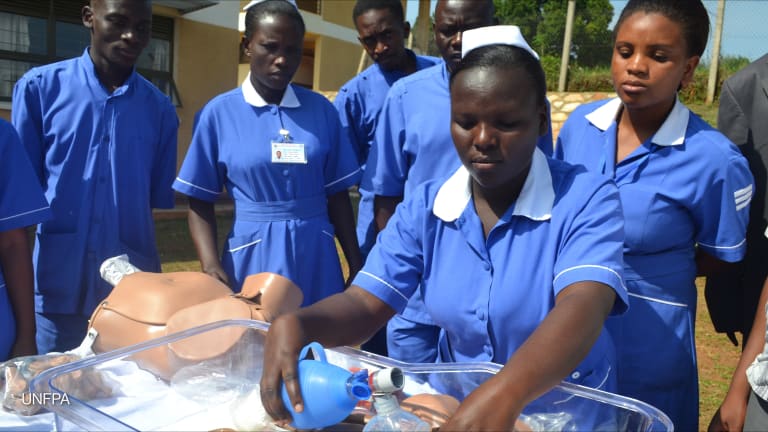CAPE TOWN, South Africa — Maternal and child health experts have hailed a game-changing new approach to treating postpartum bleeding — the leading cause of maternal mortality worldwide — which could reduce deaths by 20% and slash severe bleeding by 60%.
Postpartum hemorrhage, or PPH — defined as losing more than 500 milliliters of blood within 24 hours after birth — kills around 70,000 women every year, mostly in low-income countries, according to the World Health Organization. PPH can also lead to serious health complications including anemia, sepsis, and kidney and heart failure, as well as psychological trauma.
However, many of these dire outcomes can be avoided through earlier detection and faster and more effective treatment of PPH, experts say.








